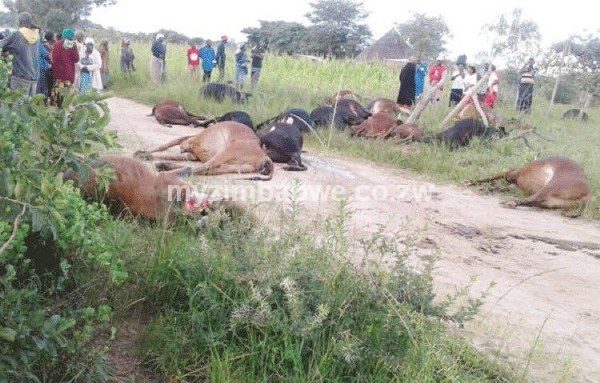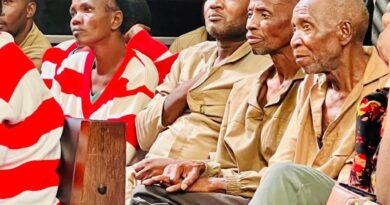Stockfeed subsidies for drought-hit livestock farmers
He said the Government was moving in with strategies such as hay baling, drilling of boreholes and provision of stockfeed subsidies in partnership with agriculture and food security development organisations.
He urged farmers not to panic and start destocking but adopt drought responsive intervention strategies.
“Farmers should not destock all their animals but rather attend to the causes which are feed and water. We encourage them to stock up on hay bales and have access to water for livestock. As the Government, we are also rolling out drought responsive intervention strategies and measures which we are calling on farmers to adopt,” he said.
He said the Government was rolling out hay baling, with the bales transported to areas in dire need.
Prof Jiri urged farmers to approach the Department of Veterinary Services to get assistance on how best to go about the baling process so that they can have supplementary feed for their animals.
“The Government is also rolling out trainings on urea treatment process, farmers should take advantage of these and where necessary consult their Agriculture Advisory and Rural Development Services (AARDS) extension officers. They can be assisted in terms of improving on the quality of the harvested crop residues and the step-by-step process of urea treating them,” he said.
“Water troughs are also being constructed at existing boreholes to save livestock. The Government has also moved mountains in drilling boreholes countrywide.”
He said the Government has been collaborating with development partners to procure feed and sell to farmers in certain areas and as part of an ongoing process meant to bring stockfeed closer to communities.
The Food and Agriculture Organisation of the United Nations (FAO) is collaborating with the Government to buy stockfeed and sell to farmers at reduced cost as a way of helping the farmers.
FAO under the European Union (EU)-funded Enhanced Resilience for Vulnerable Households in Zimbabwe (ERVHIZ) project, is equipping farmers with skills and tools to prepare animal feeds well in advance by producing fodder crops, on-farm feed formulation and stock up on hay and crop residues.
The intervention by Government comes at a time when most farmers have started laying off stock in a destocking frenzy that has seen them not getting value for their investment with a number of abattoirs getting an oversupply of cattle resulting in some suspending slaughtering.
The Government has called stakeholders in the beef value chain to collaborate and ensure they save the industry.
Currently, a number of abattoirs are getting an overwhelming supply of cattle, resulting in some suspending slaughtering.
Livestock specialist and columnist, Mr Mhlupheki Dube said it was time for all players from various sectors, be they banks, feed manufacturers, transporters, abattoir operators, drug retailers and butcheries, just to mention a few, to come together and share resources and knowledge as a drought mitigation measure.
“As an example, is there a bank willing to offer livestock farmers’ loans in terms of stock feed? Are there stockfeed manufacturers willing to trade stockfeed for livestock?
“How about abattoir operators, what is it that they are willing to present forward to help livestock farmers survive the coming scourge? The farmers themselves, are they willing to advance their animals to abattoir operators and be paid later even next year for the animals?”
He said that was a national conversation that needed to be heard, to come up with a multi-stakeholder approach for effective drought mitigation strategies to aid livestock farmers.
Meanwhile, a consortium of different women run organisations in collaboration with Bulawayo Agricultural Society (BAS) are set to host a livestock indaba in Bulawayo on 6 April.
The lead co-ordinator, Mrs Progress Moyo said the event dubbed “Farmers Great Indaba” will have discussions centred on how to survive the drought.
“Some of the topics to be covered include stock feed sustainable solutions, collaborations on grazing small livestock, funding, agri-loans, rent to buy equipment and livestock taxes among others,” she said.



